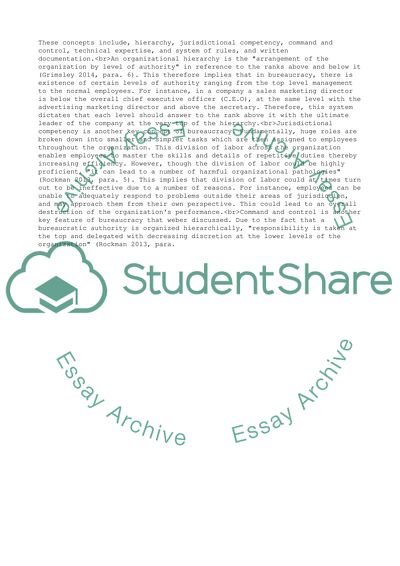Cite this document
(“Bureaucracy Essay Example | Topics and Well Written Essays - 1000 words”, n.d.)
Retrieved from https://studentshare.org/management/1662278-bureaucracy
Retrieved from https://studentshare.org/management/1662278-bureaucracy
(Bureaucracy Essay Example | Topics and Well Written Essays - 1000 Words)
https://studentshare.org/management/1662278-bureaucracy.
https://studentshare.org/management/1662278-bureaucracy.
“Bureaucracy Essay Example | Topics and Well Written Essays - 1000 Words”, n.d. https://studentshare.org/management/1662278-bureaucracy.


